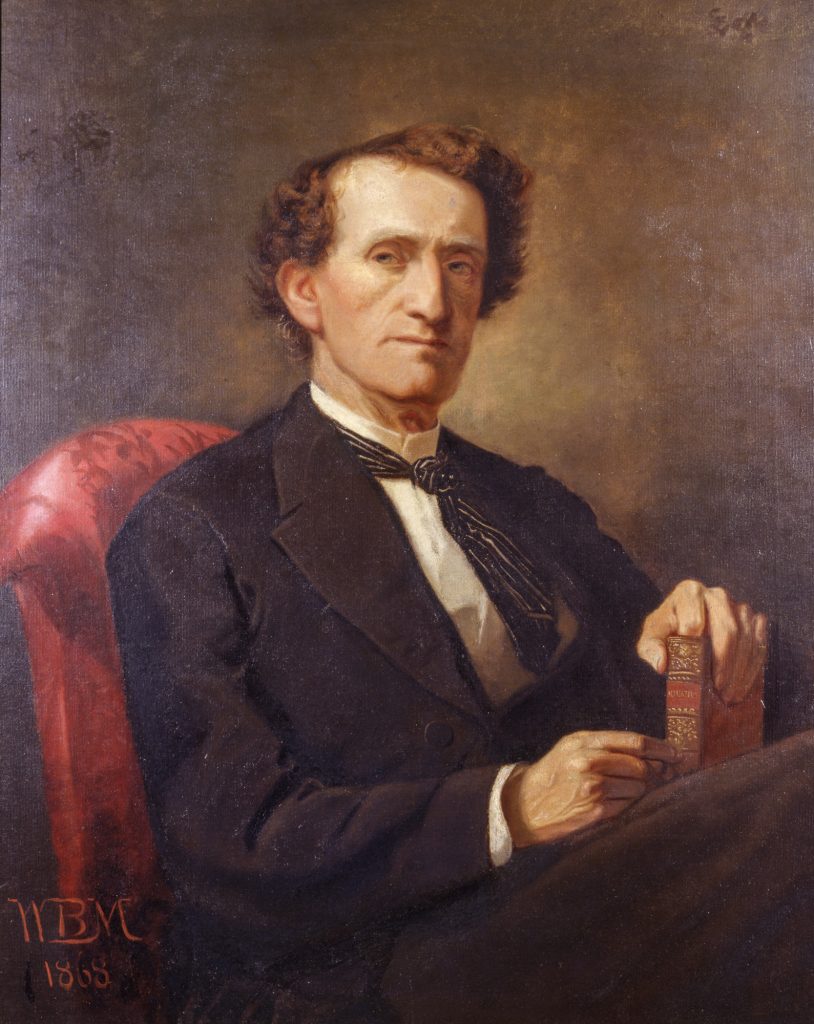With a prominent family lineage running back through the annals of early American Jewish history, and stretching from New England to the south, Gustavus Adolphus Myers had big shoes to fill as the second child of Judith Hays and Samuel Myers.
His mother was the daughter of Moses Michael Hays, shipping magnate, Freemason, and preeminent Massachusetts Jew of his day, who, despite these accomplishments, may be best remembered for having taken in and raised his sister’s sons, Abraham and Judah Touro. Moses himself had taken as his wife Rachel Myers, sister of famed New York silversmith Myer Myers, among the great artisans of colonial America and, as it turns out, maternal grandfather of Gustavus Adolphus Myers.
Samuel, Gustavus’ father, was the second child from Myer’s first marriage. Samuel spent some time in Amsterdam during the Revolutionary War, where he operated a shipping business smuggling goods to the colonies through the Caribbean island of St. Eustatia in partnership with his Montreal based cousin, Moses Myers. With the British takeover of St. Eustatia in 1784, the cousins took a major loss and spent the next few years paying off creditors. Samuel’s next move was to Richmond, Virginia, after the Revolution, where he and his half brother, Moses, went into business. Theirs was a rapid success, and they were soon joined by siblings, including Richea, and Samuel’s stepmother, Joyce Mears Myers. By the early nineteenth century, the Myers family had established itself as the leading Jewish family in Richmond, while their cousins, Samuel’s old business partner Moses and his children, including Myers, Samuel and John, had settled in Norfolk where they enjoyed a similar status.
Gustavus became a leading lawyer in Richmond. He served on the board of Congregation Beth Shalome, he was a founder of the Virginia Historical Society, served as president of the Richmond Publishing Company, director of the Richmond, Fredericksburg and Potomac Railroad, director of the Mutual Insurance Society of Virginia, and president of the Richmond Amicable Association. He was active in freemasonry, and at age twenty-six he was elected master of Richmond Lodge No. 10. Gustavus also wrote poetry and drama, and his play Nature and Philosophy was widely performed. Gustavus is probably best remembered for having served nearly thirty years on the Richmond City Council, twelve of which he served as president. He was a close associate of Judah P. Benjamin, and during the Civil War served as the Confederate consul to Great Britain. He became one of the two men to negotiate the surrender of Richmond at the end of the war and was a guarantor on the $100,000 bond for Jefferson Davis.
Gustavus fathered his first child when he was only nineteen. The mother was Nelly Forrester, a free woman of color who worked in the house of his uncle, and his father’s business partner, Moses Mears Myers. His son, Richard Gustavus Forrester, was given the mother’s family name. Richard was sent to live with his great aunts, Catherine and Slowey Hays, unwed sisters of Gustavus’ mother Judith, who had followed her down to Richmond. Slowey and Catherine helped provide an education for for Richard and both, in turn, left him sizeable bequests. Richard married a young woman, Narcissa Wilson, who had arrived from New Orleans to live with Catharine Hays. She too was the offspring of a free woman of color, Ellen Wilson, and a Jewish father, in this case Judah Touro. Richard became a successful dairy farmer and, following in his father’s footsteps, served on the Richmond City Council from 1870 to 1881, among the first African Americans to achieve this. He later became the first African American appointed to the Richmond Public School Board, where he worked to establish public schools for African American students. He also was very active in the Colored Union Labor League and Colored Masons.
In 1833 Gustavus married Anne Augusta Giles. They had only one child, William Barksdale, who would serve as a major in the Confederate army. He showed great promise as a painter and painted two of the three portraits of his father included here, but his career was cut short by an early death.
